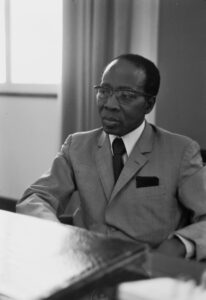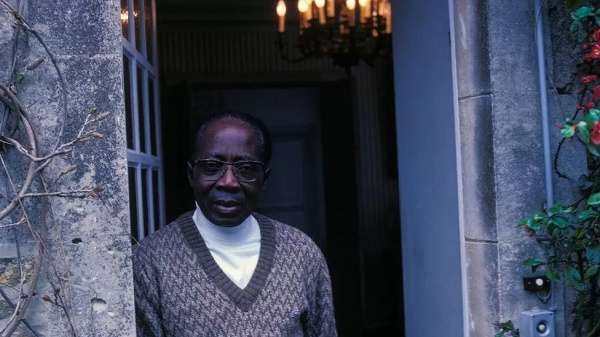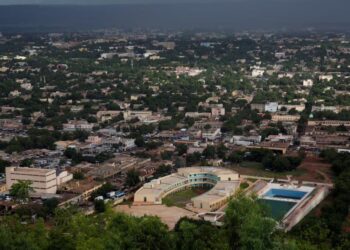Léopold Sédar Senghor is one of the most prominent political and literary figures in Africa in the 20th century. He served as the first president of the Republic of Senegal from its independence from France in 1960 until 1980. He was also a cultural theorist and poet who wrote in French and left a profound impact on modern African thought. Senghor is known for his intertwined political and cultural roles in constructing contemporary African identity and his attempt to bridge African heritage with Western modernity. This article sheds light on Senghor’s career by deconstructing his political, literary, cultural, and intellectual roles without repetition or exaggeration.
Léopold Sédar Senghor was born on October 9, 1906, in the small town of Joal, south of the Senegalese capital, Dakar, to a family belonging to the Serer tribe, a Nigerian minority. His father, Diego Senghor, was a businessman from the local bourgeoisie, while his mother was one of his father’s many wives. Senghor received his early education in the schools of Ngassobel and Dakar under the supervision of the Mission Fathers of the Holy Spirit, where he acquired fluency in French, along with his study of Latin and Greek.
In 1928, he received a scholarship to study in Paris, where he enrolled at the Institut Louis-Le Grand and the Sorbonne University, where he studied literature and philosophy and obtained a master’s degree in language and literature. Senghor was one of the few Africans at that time to gain access to the most prestigious French academic circles. During this period, he began his literary and cultural activity and became acquainted with African intellectual movements in the diaspora, such as Négritude, which he founded with Aimé Césaire and Léon Diop. Senghor championed African identity and addressed colonial issues from a poetic and intellectual perspective.
Senghor entered the political arena in 1945 as Senegal’s representative in the French National Assembly, a position that enabled him to highlight the issues of French Africa. After Senegal’s independence in 1960, he was elected the first president of the Senegalese Republic and remained in power for twenty years before voluntarily relinquishing power in 1980, one of the few presidents in Africa to do so.
Senghor’s rule was characterized by the integrationist ideology of the modern African state, as he sought to unite the country’s diverse ethnic groups under one banner while preserving its cultural and linguistic heritage, believing that cultural approaches were the foundation of any political and social progress. He adopted a strong presidential system while supporting traditional one-party politics, but he worked to ensure relative political stability compared to some other African countries.
His reign saw advancements in education and strengthened ties with France. He was also known for promoting arts and culture and for positioning Senegal as a cultural beacon in Africa. However, his rule was not without tensions, as the country witnessed coup attempts in the 1960s, and he had political conflicts with opponents such as Mamadou Dia, who was imprisoned for a long time.

In addition to being president, Senghor was a prominent poet and writer. His first collection of poetry, “Canticles of the Shadows,” was published in 1945, expressing themes such as homesickness and the pain of African pride under colonialism. His poetry was characterized by its combination of African traditions and the French language, attempting to express African identity in a modern world.
Senghor held a significant intellectual position as one of the most prominent theorists of the Negritude movement, which called for a renewed sense of pride in African identity and the resistance to cultural marginalization. In his works, he analyzed the relationship between African culture and the West, advocating for placing African culture at the center of the global landscape without becoming self-absorbed. He also wrote in the fields of philosophy and the social sciences, emphasizing the intrinsic value of national culture in development.
Senghor proposed both unilateral and multifaceted cultural theories that have been influential in understanding the relationship between culture and power in Africa. He highlighted the principle of “Negroidity” as a critique of intellectual colonialism, calling on Africans to restore their authentic values and traditions while being selectively open to Western knowledge. He considered African culture to be the bearer of African identity, which forms the basis of politics and development.
In the African context, Senghor was a supporter of continental federalism (a type of “French Commonwealth”) and attempts to unify Africa politically and culturally through various roles in African and international organizations. His ideas and reflections were received mixedly, with some criticizing him for being influenced by French culture and for his transition from tribal culture to the world of the modern state and from local culture to global culture.
Senghor’s career was not without criticism, both in terms of political governance and cultural dimensions. His opponents accused him of establishing the foundations of an authoritarian regime through a single party and of not allowing freedom of opposition, which led to internal political tensions, especially during the period of opposition arrests.
Culturally, some scholars have found his “Negro” approach to be a limited vision for expressing African diversity and its complex internal differences. They have accused him of eliminating some aspects of the struggle by contributing to the legitimization of colonial influence through his excessive openness to French culture. Debates have also revolved around Senghor’s handling of the religious and linguistic dimensions of the Senegalese state.
Senghor represents a complex symbol embodying the struggle between the traditional and the modern, the micro and the macro, and the local and the global. After stepping down from the presidency, he devoted his efforts to literature and culture, visiting numerous international forums, and Senegal retained his official status as founding president.
His literary legacy remains a source of study for his dual approach, combining poetry and ideology. Some consider him a symbol of the modern African cultural movement, and his political contributions have contributed to Senegal’s relatively stable position within West Africa.



























































